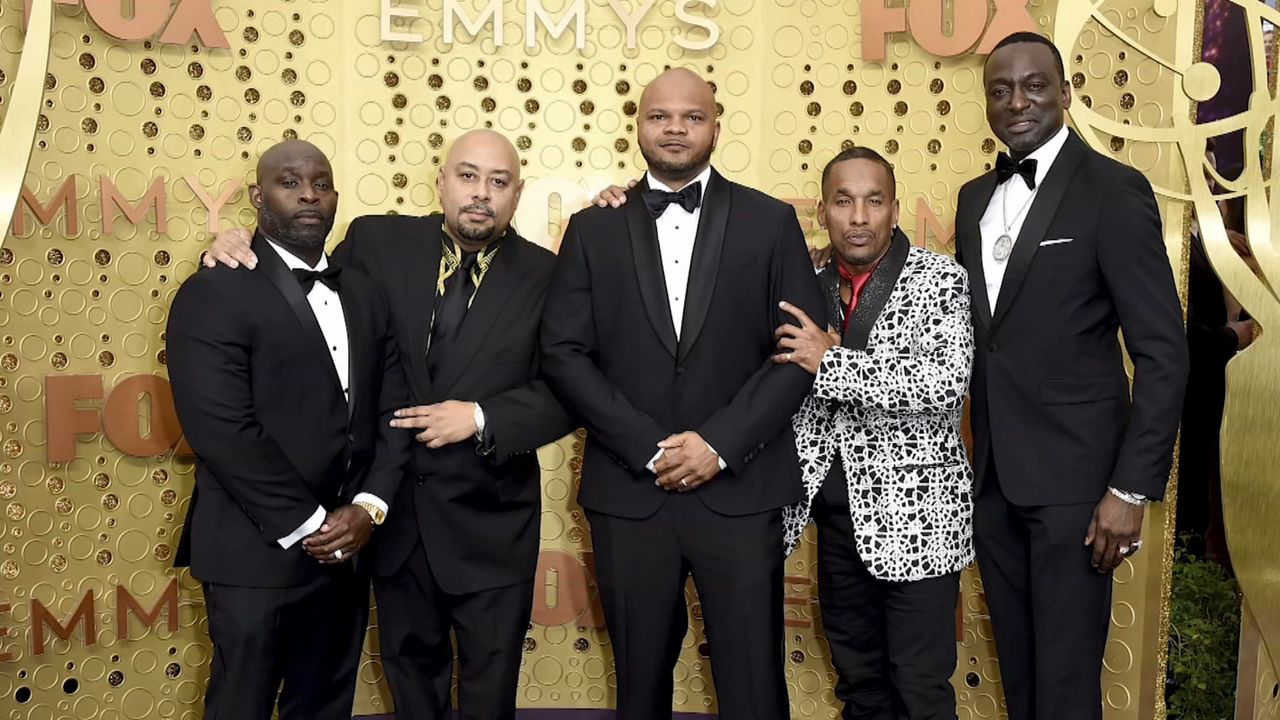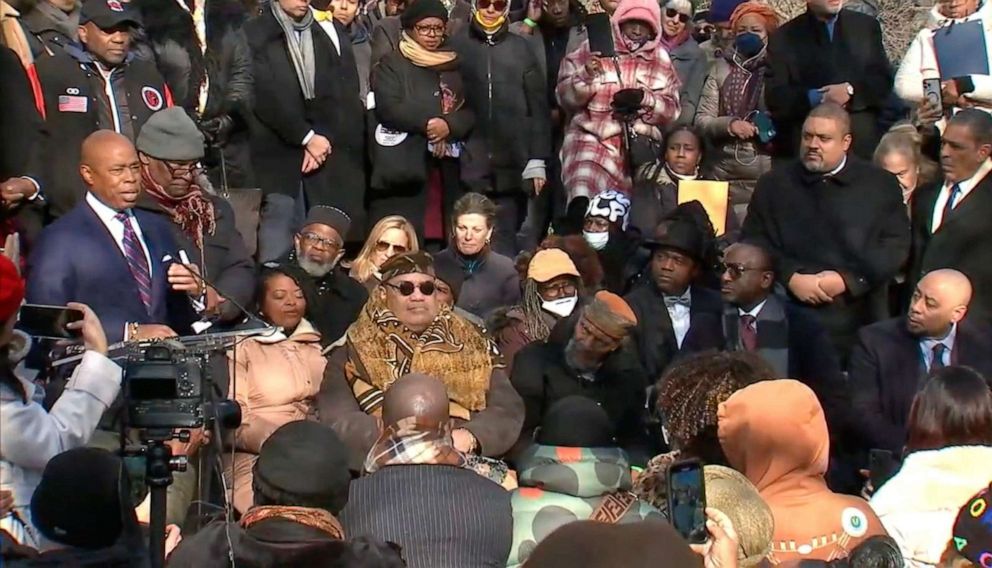Exonerated Five: A Journey Through Injustice, Redemption, And Justice Reform
When you hear the name "Exonerated Five," it’s not just a story—it’s a movement. It’s a narrative that dives deep into the heart of systemic injustice, the fight for redemption, and the need for justice reform. This isn’t just another tale of wrongfully convicted individuals; it’s a powerful reminder of how the system can fail and how resilience can triumph over adversity. The Exonerated Five became a symbol of hope for many who have faced similar injustices.
Picture this: five young men, their lives shattered by a system that labeled them guilty before they even had a chance to prove their innocence. Their journey through the labyrinth of legal battles and societal stigma is both harrowing and inspiring. It’s a story that demands attention, not just for its emotional weight but for the lessons it teaches about accountability, fairness, and the need for systemic change.
The Exonerated Five’s story doesn’t end with their exoneration. It continues as a call to action for everyone who believes in justice. It’s not just about what happened to them—it’s about what can happen to anyone if the system isn’t reformed. This article will take you on a journey through their struggles, victories, and the lasting impact they’ve had on the justice system.
Read also:Julia Collin Davison A Culinary Force Redefining Cooking
Understanding the Exonerated Five
Who Are the Exonerated Five?
The Exonerated Five, originally known as the Central Park Five, are five men—Antron McCray, Kevin Richardson, Yusef Salaam, Raymond Santana, and Korey Wise—who were wrongfully convicted of a crime they didn’t commit. In 1989, these young men were accused of assaulting and raping a woman in Central Park. Despite lack of physical evidence and conflicting testimonies, they were convicted and served years in prison. The case became a media sensation, highlighting issues of racial bias and systemic injustice.
Years later, the truth came to light when Matias Reyes, a serial rapist, confessed to the crime. DNA evidence confirmed his confession, leading to the exoneration of the five men. This revelation shook the nation and brought attention to the flaws within the justice system.
The Road to Injustice
The Initial Arrests and Convictions
Back in 1989, the city of New York was gripped by fear and outrage after the brutal assault on a jogger in Central Park. The police quickly arrested five teenagers from Harlem, all of whom were African American or Latino. Under intense pressure to solve the case, the police used coercive interrogation tactics, leading to false confessions. The media frenzy only added fuel to the fire, portraying these young men as dangerous criminals without giving them a fair chance to defend themselves.
The trial was riddled with errors. The prosecution relied heavily on the coerced confessions, despite the lack of DNA evidence linking the five men to the crime scene. The jury, influenced by media narratives and societal biases, convicted them. This miscarriage of justice set the stage for a long and painful journey toward truth and accountability.
Life Behind Bars
The Impact of Wrongful Conviction
Serving time for a crime they didn’t commit took a devastating toll on the Exonerated Five. Each of them faced unique challenges, from coping with the harsh realities of prison life to dealing with the emotional trauma of being labeled a criminal. Korey Wise, the oldest of the group, spent over a decade in prison, much of it in solitary confinement. The psychological impact of such an experience is unimaginable, yet he emerged with a resilience that inspires many.
Read also:Ninja Turtles Names Colors A Comprehensive Guide To The Heroes In A Half Shell
For Kevin Richardson, Antron McCray, Yusef Salaam, and Raymond Santana, the years behind bars were marked by a constant fight for survival and a relentless pursuit of truth. Their stories highlight the human cost of wrongful convictions and the urgent need for reforms in the criminal justice system.
The Path to Redemption
Matias Reyes and the Confession
In 2002, everything changed when Matias Reyes, a convicted serial rapist, confessed to the Central Park jogger attack. His confession was corroborated by DNA evidence, proving that the Exonerated Five had been wrongfully convicted. This revelation was a turning point, not just for the five men but for the entire justice system.
The exoneration process was long and arduous. Legal teams worked tirelessly to overturn the convictions, fighting against a system that had already failed them once. The courage and persistence of the Exonerated Five were instrumental in bringing about this justice. Their journey from wrongful conviction to exoneration is a testament to the power of truth and the importance of accountability.
Justice Reform: A Necessary Step
The Need for Systemic Change
The story of the Exonerated Five is not just about their personal battles; it’s about the broader issue of systemic injustice. The case exposed deep flaws in the justice system, including racial bias, coercive interrogation tactics, and the influence of media on public perception. These issues demand attention and action.
Efforts to reform the justice system have gained momentum in recent years. Advocates push for changes in interrogation practices, improved forensic science standards, and increased transparency in legal proceedings. The Exonerated Five’s case has been a catalyst for these reforms, highlighting the urgent need for a fair and equitable justice system.
The Impact on Society
Raising Awareness and Advocacy
The Exonerated Five’s story has had a profound impact on society. It has raised awareness about the injustices faced by marginalized communities and the importance of advocating for systemic change. Their journey has inspired countless individuals and organizations to take action, whether through legal advocacy, community outreach, or public awareness campaigns.
The documentary "When They See Us," created by Ava DuVernay, brought their story to a global audience, sparking conversations about race, justice, and reform. The film’s success is a testament to the power of storytelling in driving social change. It has encouraged people to question the narratives presented by the media and to demand accountability from those in power.
Lessons Learned
What We Can Take Away
The Exonerated Five’s journey teaches us valuable lessons about resilience, justice, and the importance of truth. It shows us that even in the face of overwhelming adversity, there is hope for redemption. It reminds us that the justice system is not infallible and that we must remain vigilant in our pursuit of fairness and equality.
One of the most important takeaways is the need for systemic reform. The flaws exposed by the Exonerated Five’s case must be addressed to prevent similar injustices in the future. This requires a commitment from all stakeholders, including law enforcement, legal professionals, policymakers, and the public.
The Future of Justice
Continuing the Fight
While the Exonerated Five have been exonerated, their fight for justice continues. They remain committed to advocating for reform and supporting others who have been wrongfully convicted. Their voices are powerful tools in the ongoing battle for a fair and equitable justice system.
Efforts to address systemic injustice are gaining traction, with more people recognizing the need for change. The Exonerated Five’s story serves as a reminder of the work that still needs to be done and the importance of standing up for what is right, even when the odds are stacked against you.
Conclusion
The journey of the Exonerated Five through injustice, redemption, and justice reform is a powerful narrative that demands attention. Their story highlights the flaws in the justice system and the resilience of those who fight for truth. It serves as a call to action for everyone who believes in fairness and equality.
As you reflect on their journey, consider what you can do to support justice reform. Whether it’s through advocacy, education, or simply spreading awareness, your actions can make a difference. Share this article, leave a comment, and continue the conversation. Together, we can work toward a future where justice is not just an ideal but a reality for all.
Table of Contents
- Understanding the Exonerated Five
- The Road to Injustice
- Life Behind Bars
- The Path to Redemption
- Justice Reform: A Necessary Step
- The Impact on Society
- Lessons Learned
- The Future of Justice
- Conclusion
Remember, the fight for justice is ongoing. The Exonerated Five’s story is just one chapter in a larger narrative of change. Let’s keep the conversation alive and work toward a better future for all.


